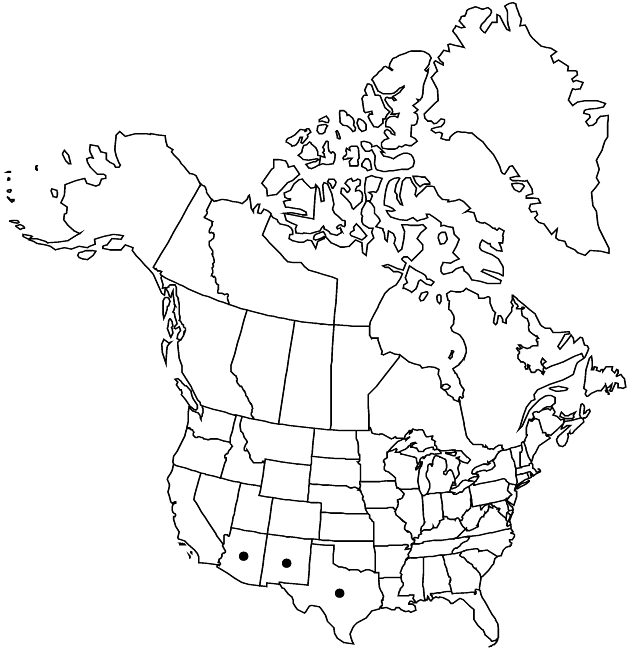Difference between revisions of "Pseudognaphalium pringlei"
Opera Bot. 104: 147. 1991.
imported>Volume Importer |
imported>Volume Importer |
||
| Line 52: | Line 52: | ||
|publication year=1991 | |publication year=1991 | ||
|special status= | |special status= | ||
| − | |source xml=https:// | + | |source xml=https://bitbucket.org/aafc-mbb/fna-data-curation/src/2e0870ddd59836b60bcf96646a41e87ea5a5943a/coarse_grained_fna_xml/V19-20-21/V19_691.xml |
|tribe=Asteraceae tribe Gnaphalieae | |tribe=Asteraceae tribe Gnaphalieae | ||
|genus=Pseudognaphalium | |genus=Pseudognaphalium | ||
Latest revision as of 19:54, 5 November 2020
Annuals or perennials, 30–80 cm; taprooted. Stems lightly white-tomentose and/or glabrescent and green, minutely stipitate- or sessile-glandular beneath other induments. Leaf blades (not crowded, internodes mostly 5+ mm) oblanceolate-spatulate to obovate- or petiolate-spatulate, 5–10 cm × 10–20 mm (distal oblong to lanceolate or oblanceolate, 2–8 cm, slightly smaller), bases not clasping and decurrent 3–20 mm or clasping and decurrent 1–3 mm or not decurrent at all, margins flat to slightly revolute, faces bicolor, abaxial thinly white-tomentose, adaxial minutely stipitate- or sessile-glandular, otherwise glabrous or glabrate (bases of hairs persistent, enlarged). Heads in loose, corymbiform arrays. Involucres campanulate to turbinate, 3.5–4 mm. Phyllaries in 2–3 series, silvery white to tawny, oblong to oblong-ovate, (hyaline, shiny), glabrous. Pistillate florets 15–40(–64). Bisexual florets (1–)2–6. Cypselae ridged, papillate-roughened.
Phenology: Flowering (Aug–)Sep–Nov.
Habitat: Rock outcrops and slopes, crevices and thin soil on cliffs, oak or oak-pine woodlands
Elevation: 1500–2300 m
Distribution

Ariz., N.Mex., Tex., Mexico (Chihuahua, Durango, Sonora).
Discussion
Selected References
None.